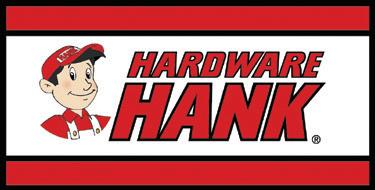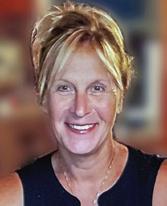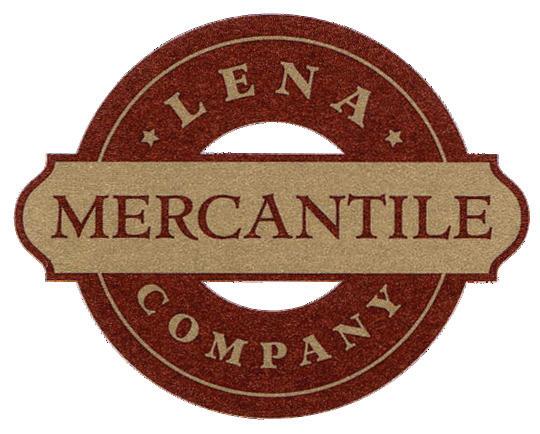Family 2025 &Owned Operated

















Family businesses account for 64 percent of U.S. gross domestic product, generate 62 percent of the country’s employment, and account for 78 percent of all new job creation.
Family-owned businesses are the backbone of the American economy. Studies have shown about 35 percent of Fortune 500 companies are familycontrolled and represent the full spectrum of American companies from small business to major corporations.
The greatest part of America’s wealth lies with family-owned businesses. Family firms comprise 80 to 90 percent of all business enterprises in North America.
Roughly 90 percent of the families responding to a survey in “From Longevity of Firms to Trans-generational Entrepreneurship of Families: Introducing Family Entrepreneurial Orientation indicated that they control more than a single firm. The results of the survey suggest that there is strong entrepreneurial activity undertaken by controlling families beyond their core (i.e., largest) company.
Small businesses, including many family firms, employ just over half of US workers.
Of 113.4 million non-farm private sector workers in 2011, small firms with fewer than 500 workers employed 55 million and large firms employed 58.4 million. Firms with fewer than 20 employees employed 20.2 million.
Research shows that family businesses are less likely to lay off employees regardless of financial performance.
Recent research has shown that continued family control can be efficient, since families are, for example, able to positively affect the resource inventory and usage of their firms, apply a long-term perspective allowing for unique strategic positioning, have less human resources problems and higher firm values, or drive new entrepreneurial activity.
What truly drives many family businesses is the sense of connection and identity the owners and their family members feel with the business.
The mean age of family control in the family’s core company is 60.2 years.
More than 30 percent of all familyowned businesses survive into the second generation. Twelve percent will still be viable into the third generation, with 3 percent of all family businesses operating
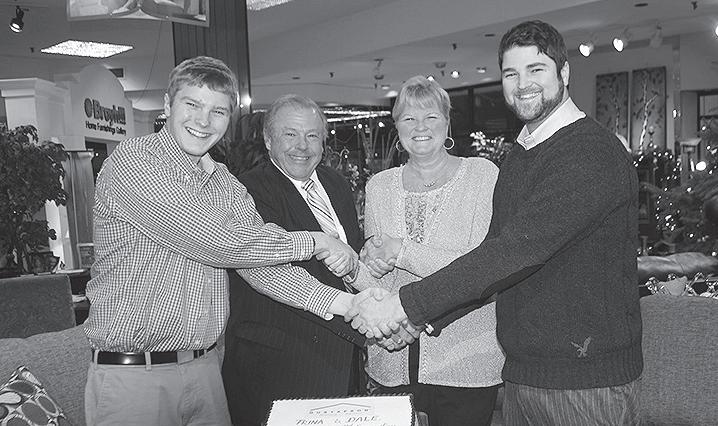
at the fourth-generation level and beyond.1
The tenure of leadership in a Family Enterprise is four to five times longer than their counterparts.
Of primary importance among family firm wealth holders is transferring not only their financial wealth but also their values surrounding their wealth to subsequent generations. Primary values taught include encouraging children to earn their own money, philanthropy, charitable giving and volunteering.
The environment for innovation in family businesses improves when more generations of the owning family are actively involved in the business.
Family businesses retain talent better than their competitors do: only 9 percent of family businesses work forces turned over annually (versus 11 percent at nonfamily firms), in a Harvard Business Review study. They create a culture of commitment and purpose, avoiding layoffs during downturns, promoting from within and investing in people.
Family-owned businesses have strong entrepreneurial activity across time. On average and over the family’s history these families controlled 6.1 firms, created 5.4 firms, added 2.7 firms through merger and acquisition activity, spun off 1.5 firms, and shifted industry focus 2.1 times. These families exhibit a significant level of entrepreneurial activity over time, in terms of rearranging the portfolio of activities
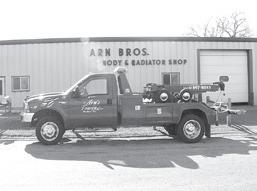
through founding activity, mergers and acquisitions, as well as divestments.
The largest family-owned business in the US is Wal-Mart Inc., with $499.4. billion in net sales and 2.2 million employees worldwide in 2016.
222 owners and executives of mostly mid-sized, family-owned businesses were surveyed. Approximately 70percent of the respondents represented companies with revenues of $200 million or more, while 25percent were with companies generating revenues of $500 million or more.
In the S&P 500 companies, ROI is greater in family businesses, with a 6.65 percent greater return than non-family firms.
Family-owned businesses practice good governance. A Harvard Business Review study showed 94 percent of surveyed family firms were controlled by supervisory or advisory boards. Family representation on these boards averaged 31 percent, demonstrating a clear separation between family and business in most cases.
Family businesses leaders focus on the next generation, not the next quarter. They tend to embrace strategies that put customers and employees first and emphasize social responsibility.
Family businesses develop leaders in unlikely places – more than 40 percent of companies in the Harvard Business review study included members of the next
generation on their boards and committees in order to nurture their business and management skills.
Family businesses have powerful internal cultures. A study of 114 family firms and 1,200 other large companies for their organizational health found that family-owned businesses scores significantly higher on things like worker motivation and leadership.
74 percent believe they hae a stronger culture and values than non-family firms. And, 72 percent measure success differently – not just growth and profit. women matter in family business
Women are increasingly participating in family businesses leadership. Currently, 24 percent of family businesses are led by a female CEO or President, and 31.3 percent of family businesses surveyed indicate that the next successor is a female. Nearly 60 percent of all familyowned businesses have women in top management team positions.
Over the past five years, woman-owned family businesses have increased by 37percent.
Female-owned family firms are typically 10 years younger than male-owned firms and more are first-generation businesses.
Female-owned family firms experience greater family loyalty to the business, agreement with its goals, and pride in the business.
Woman-owned family firms have a 40percent lower rate of family member attrition in the business.
By 2017, it was estimated that 40.3 percent of family business owners expected to retire, creating a significant transition of ownership in the US. Less than half of those expecting to retire in five years have selected a successor.
Nearly half of family business owners (43 percent) have no succession plan in place.
Even though nearly 70 percent of family businesses would like to pass their business on to the next generation, only 30 percent will actually be successful at transitioning to the next generation.
A majority of family businesses (60 percent) believe that their ethical standards are more stringent than those of competing firms. They also report ethical standards being discussed often or always at meetings with employees, in discussions with customers and during board meetings.

John F. Morrissey began his public accounting career in 1968. He founded John Morrissey Accountants, Inc. in 1972 in the basement of his home. At the time, John made a three-month commitment to himself - if things didn’t work out, he would give up his dream of owning his own accounting practice.
Fifty years later, John Morrissey Accountants has grown exponentially through new business and client relationships, accounting practice acquisitions and market share expansion.
John and his wife, Fran next founded Staff Management in 1983, a Human Resource Consulting and Professional Employer Organization to assist their clients with the increasing complexities of compliance and Human Resources in general.
John and Fran, along with their son John J. then acquired an existing Payroll company, Market Dimensions, to offer cost effective payroll solutions to their clients. These three companies make up the Morrissey Family Businesses.



The Van Laar family moved from the Chicago suburb of Lisle, Ill., to the rural town of Capron, Ill., located in the county of Boone. We moved for the purpose of beginning a family fruit farm where we all participate using the gifts our Creator has granted each of us.
The farm was formed with the vision of some day being able to pass a sustainable practice down to the next generation (Multiple Generational Vision).
The fruit farm began to grow by planting apple, pear & peach trees, strawberries and raspberries. We found that our fruit was loved by all.
At the farmers markets, we saw a need for great tasting sweet corn and tomatoes so we planted a number of trial plots to determine the best for fresh eating and the best for processing.
The farm added more apple, pear and peach trees as well as strawberries and raspberries. We also started growing blackberries and hard red winter wheat. We added free range chickens as well as honey bees.
Currently, we have approximately 3,750+ apple trees, 90 pear trees, 250 peach trees, a few acres of strawberry, raspberry & blackberry plants, 3,000+ tomatoes and many acres of sweet corn. We continue to invest and grow as we are blessed with more customers who are attracted to our produce.
As the family has worked together over the past few years, we have become more aware of the effects that farming practices have on the environment, some good, some not so good. We realize that the farming

culture of the past does not necessarily need to be the farming practices of today.
As the family grows in our understanding, we are learning that sustainability with regards to economic, environmental and social considerations is the key to moving forward as a farming family. For this reason the farm operates with minimal debt, uses many organic based compounds for fertilizing, and pest (insects and disease) management, and has locally sold its produce in the immediate region of the farm.
We have become increasingly aware of the microbiology of the soil and how a healthy soil requires less N-P-K nutrients to grow the same plant.
Although we are not an organic farm, due to the disease pressure in the Midwest, we strive each day to be good stewards of the many blessings of the resources we have been given.
The Van Laars sell fresh sourdough bread (14 varieties) and apple cider donuts from their storefront shop at the Edgebrook Center on N. Alpine Road in Rockford. Visit us Monday-Friday 9 a.m. to

Stateline Solar was founded by Ethan Fiene in July of 2017, but it started long before that. Ethan has had a passion for construction from a young age, which eventually tied to his passion for renewable energy.
He has always wanted to be a business owner and the ability to bring clean, renewable energy to his home community. At 23 years old, he began his endeavor and formed Stateline Solar.
Now, with satisfied solar customers in the Illinois/Wisconsin/Iowa state-line area, Stateline Solar has become the local expert on everything solar.
From agricultural, commercial, and residential projects, Stateline Solar brings quality installation to the table.
Stateline Solar was awarded Start-Up of the Year in 2019 by the Greater Freeport Partnership.
Transforming your home to solar energy is an easy and financially beneficial move. With rising utility cost and constant electrical usage, solar energy offers a continuous source of affordable renewable electricity. Switching over to solar energy will reduce fluctuating electric bills and combat greenhouse gas emissions and reduces our collective dependence on fossil fuels. Home solar PV systems can be installed on residential roofs, sheds, or ground mounted.
Coming from the Midwest and agriculture a major component of our lifestyle, Stateline Solar seeks to ensure that our farmers can get the most from their land. To harvest the land and the sun would truly be max utilization of resources.
Solar energy is a long-term opportunity that future generations can benefit from
as well as current. To reduce our carbon footprint and additionally ensure our future has renewable energy is a gift that continuously is giving.
Stateline Solar will customize any solar array to optimize our client’s existing roof, shed, or available land.
Generac Battery Back-Up Systems
Battery back-up systems are essential for off-the-grid solar energy systems. Stateline Solar is a certified Generac dealer and installer.
Generac Generators
Price varies · 30 mins
Stateline Solar is a certified installer, dealer, and servicer of Generac generators. These can be purchased with or without the purchase of a solar energy system.
Energy Monitoring Service
$400 · 30 mins
Stateline Solar offers an energy consumption monitoring system that can be purchased with or without solar. This allows a home or business owner to monitor their energy consumption in real time, allowing for energy consumption habit change.
Solar energy is a smart business choice with constant electrical needs and mass consumption. Stateline Solar aims to support neighboring businesses in adopting green energy, lower operating cost, and utilizing large roof area. Let Stateline Solar be Your Green Solution!
Stateline Solar offers solar lighting services. Anything from promotional sign lighting to accent lighting around buildings, solar lighting offers a green, efficient way to brighten any business.
Stateline Solar is located at 310 W. Main St., Lena, Ill. Call 815-580-3011 for more information.
John Erlander was born in Slätthög, Kronobergs län, Småland, Sweden on April 7 1826. He emigrated to the United States in 1854 with his sister Kajsa Jönsdotter, and his brother Peter Magnus Jönsson.
Their father was Jöns Petterson, so their name was Jönsson. (Note: Surnames were not solidified in Sweden until the late 1800’s. Until that time children were identified by their father’s first name with the addition of either “son” or “dotter” to the end of the name--depending on their gender.)
John Erlander first settled in Chicago where he learned to operate a new, timesaving invention...the sewing machine. In 1855 he came to Rockford and worked as a tailor. His employer had a sewing machine, but did not know how to use it. John did, however know how to use it, and added to the business success through increased productivity.

Erlander was involved in several business ventures during his lifetime. In 1861, he entered into a partnership with Sven August Johnson (often referred to as S.A. Johnson). They open a tailoring and men’s clothing shop on East State Street, naming their business “Erlander & Johnson.”
According to John Erlander’s son Alfred, the men entered into their partnership with the agreement that they were to share everything equally...and as the Vikings did, they swore in blood to keep the pledge. The clothing store flourished, and the partners remained in business until 1885 when Erlander sold his half of the business to Johnson. He was 59 years old at the time.
In 1876, the Rockford Union Furniture Company was organized by a small group of men meeting at the Erlander home. Jonas Peters, Erlander’s brotherin-law, had saved some money while serving in the Civil War. With this seed money Peters started the Union Furniture Company. John Erlander was elected President of the company. Jonas, formerly a cabinetmaker’s apprentice, served as Treasurer/Manager, and P.A. Peterson was elected company Secretary. The Union Furniture Company was a cooperative association with 25 members. Members helped to raise the initial capital for the business. It was the first of 25 area furniture factories that were formed as cooperatives. John Erlander was involved in several other business ventures and provided leadership in the Rockford community. He served on the boards of the Excelsior Furniture Company, the Central Furniture Company, and the Rockford Brick Company. He was also one of the primary organizers of the Swedish Mutual Fire Insurance Company, and was a stockholder in Manufacturer’s National Bank.
Gilbank Construction, located in Clinton, Wis., has been a Merit shop General Contractor Member of Associated Builders and Contractors of Wisconsin since the 1970’s.
Gilbank has been a staple in its small‐town community. Gilbank Construction, Inc. was incorporated in 1965 and has thrived since. Gilbank Construction, Inc. has completed a vast amount of commercial, industrial and residential projects in the southern Wisconsin and northern Illinois state line area.
Our teams of office and field management staff are highly skilled and reputable construction professionals. Our job superintendents have an immense body of knowledge generated through decades of construction experience. Several of our superintendents have been with Gilbank Construction, Inc. for over 30 years.
Their knowledge and problem solving abilities on the construction site, combined
with our skilled workforce, are a key factor in our success.
Project Management separates us from other commercial construction companies. Our clients have the unique ability to work with a management staff that has a vested interest in the success of the project and in Gilbank Construction, Inc.
Our project management team consists of Tom Gilbank (President) and Gary Gilbank (Vice President). Tom and Gary are 2nd generation employees. Tom has been with Gilbank Construction, Inc. since 1975 and Gary has been with Gilbank Construction, Inc. since 1986.
John Williams has been with Gilbank Construction, Inc. for 12 years. He currently serves as the Secretary/Treasurer for Gilbank Construction, Inc. and is also a member of the board of directors. Our newest project manager is James Gilbank; James started the third generation for Gilbank Construction, Inc.
According to North One banking, women-owned firms account for more than 12 million businesses in the United States. In addition, the 2024 Wells Fargo Impact of Women-Owned Business Report, in partnership with Ventureneer, Core Women and Women Impacting Public Policy, found the number of women-owned business increased at a rate of 4.5 times between 2019 to 2023. Women-owned businesses are driving economic growth, and a deeper look at some of the numbers supports that notion.
• The Women’s Business Enterprise Council says there are 12.3 million women-owned businesses in the U.S., which comprises about 40 percent of the total number of businesses.
• Women-owned businesses bring in nearly $2 trillion every year, says the National Women’s Business Council.
• During the pandemic, women-owned businesses added 1.4 million jobs and $579.6 billion in revenue to the economy, says Wells Fargo.
• World Bank indicates that roughly onethird of principal owners of all businesses are female.
• WBENC advises that 64 percent of new women-owned businesses are started by women of color.
• Women’s Business Enterprises Canada says more than 85 percent of buying decisions are influenced by women. The

Canadian Minister of Small Business notes that women business ownership is growing. In 2023, approximately 18.4 percent of all businesses in Canada were majority owned by women, compared to 15.6 percent in 2017.
The number of women-owned businesses increased at a rate of 4.5 times during a recent 4-year period.
• According to Forbes, women-led tech companies achieve a 35 percent higher ROI. A Forbes study with First Round Capital, a venture capital firm, found female-founded businesses in their portfolio outperformed male-founded companies by more than 60 percent. Women-owned businesses are making a large impact on North America and around the world. Such firms continue to employ millions of people and foster strong economies.




In 1986, 20 years after reaching the “Land of Opportunity,” the Salamone Family opened the original Franchesco’s with the dream of introducing our family’s Sicilian history and traditions. Food preparation techniques, and recipes that were handed down over the last two centuries are certainly evident in our daily routine.
At 93 years of age, Frank Salamone the family patriarch, continued to prepare his original sauces and dishes that have attracted guests from all corners of our country until his passing in 2024.
After 33 years of striving towards culinary perfection, our latest generation of Salamones guarantees your experience at any of our restaurants will be unique, as well as exemplary. Join us as we visit our family’s most memorable event of the day, “DINNER,” where every sitting is always considered a feast.
Franchesco’s Ristorante stands as a pinnacle of fine dining, offering an exquisite culinary journey in an elegant and sophisticated ambiance. We’re known for our authentic Italian cuisine, masterfully crafted by skilled chefs using only the freshest, locally-sourced ingredients.
The restaurant’s interior exudes a luxurious charm, with its rich, warm tones, ambient lighting, and tastefully curated art pieces that create a welcoming and refined atmosphere.
The attentive and professional staff ensure a memorable dining experience, complemented by an impressive selection of fine wines. Franchesco’s Ristorante is not just a meal; it’s a culinary adventure that engages all the senses, making it a
beloved destination for special occasions and gourmet enthusiasts in Rockford.
Located at 7128 Spring Creek Road, Rockford, Ill. Phone 815-229-0800
At Benny’s Bar & Lounge you’ll find an exclusive collection of cocktails, a fun and relaxed atmosphere, and all the great menu items from Franchesco’s. With our Rockford famous outdoor/indoor patio, live music series, and amazing service, you’re sure to have a wonderful time.
Located at 7128 Spring Creek Road, Rockford, Ill. Phone 815-229-0800
Fresco at the Gardens, Rockford’s exclusive Restaurant offers a culinarydesigned menu featuring a wide range of breakfast and lunch creations features handcrafted coffee, espresso, cappuccino, freshly squeezed juice creations.
In search of the absolute top-notch quality, we have found that you have to go directly to the source. Fresco has partnered with local suppliers to provide you with the ultimate dining experience.
Stay and enjoy the beautiful Anderson Japanese Gardens a beautiful, outdoor setting that inspires the mind and energizes the soul. Their twelve-acre landscape of streams, waterfalls, winding pathways, and koi-filled ponds has been rated one of North America’s highest quality Japanese gardens for more than a decade.
Located at 318 Spring Creek Road, Rockford, Ill. Phone 815-316-2256
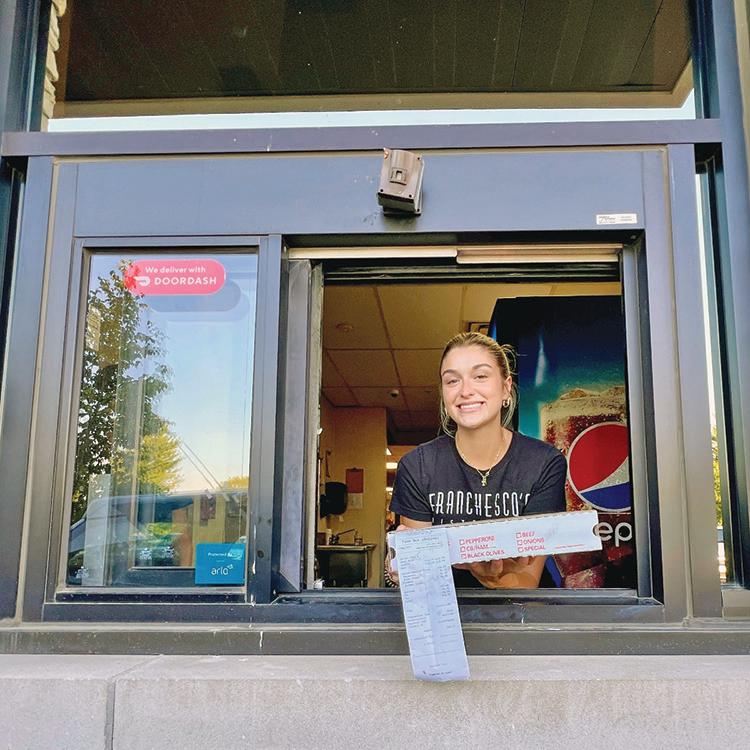





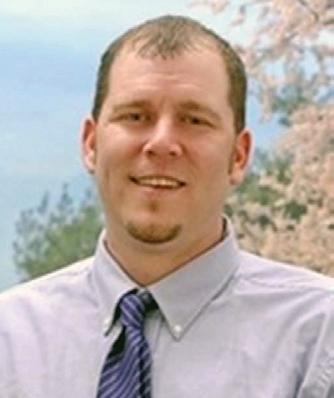





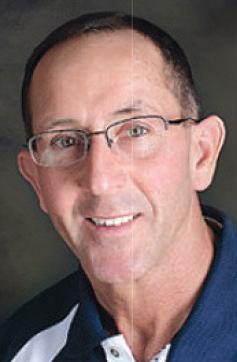
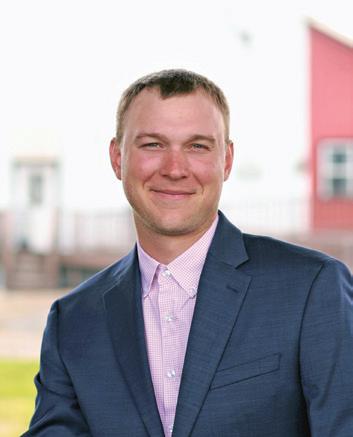





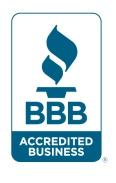


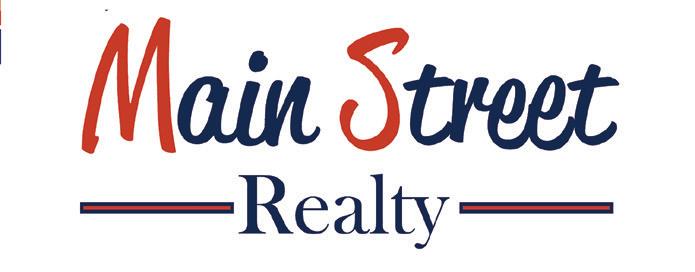



The cost of starting a new business is contingent on a host of variables unique to each startup, but prospective entrepreneurs can expect to spend a substantial sum to get a business off the ground.
However, that sum may not be as considerable as first-time entrepreneurs anticipate. Utilizing data from the U.S. Census Bureau, researchers at LendingTree estimate that 21 percent of business owners launch their venture with less than $5,000. Those costs vary widely by industry. For example, LendingTree researchers note that the average new construction firm needs just under $68,000 to get started, and 50 percent of such firms began with less than $12,390.
Starting a firm that specializes in the management of companies and enterprises, which includes firms that hold securities or equity interests of another enterprise, required considerably more funding at startup.
LendingTree researchers estimated that the average business in that industry required roughly $441,000 in startup funding. Such disparities highlight the significance of determining startup costs prior to beginning a venture.
The Small Business Administration notes that startup costs can cover a range of expenses, including office space, equipment and supplies, utilities, insurance, advertising, and marketing.
As a local, family-owned business, Stateline Solar is more than just a solar company we’re part of this community We were raised right here in the stateline area, and in 2017, we started Stateline Solar with a vision to bring reliable, renewable energy solutions to the people and businesses we care about most.
Over the past 8 years, we’ve been honored to help homeowners, businesses, and farms harness the power of solar energy, all while staying true to our core values exceptional service, integrity, and a commitment to the community that shaped us When you choose Stateline Solar, you’re not just investing in clean energy; you’re supporting a local business that’s dedicated to making our community stronger and more sustainable
Thank you for your trust and support We’re excited to continue working alongside you to build a brighter future one panel at a time!
Sincerely,





Manus Repair Center is a family-owned and operated automotive maintenance and repair center located in Pecatonica, Ill. We have served Pecatonica and the surrounding area for over 30 years.
In 1981 Rick Manus started his own auto repair shop in German Valley after leaving his Auto Technician job at JC Penney. (Yes, Penney’s had auto repair shops back in the 60’s & 70’s)
In 1983 Rick brought in Rod Wichman as partner and Diesel Mechanic & it became Manus & Wichman Repair. He started a shop in Forreston in 1993 and one in Pecatonica in 1997. After
dissolving the partnership of 25 years, the business became Manus Repair Center in 2006.
Randy Manus joined his father as an auto technician in 1997. Beth Manus has always done the bookwork but became the service writer in 2008. We just have the one shop in Pecatonica now and enjoy the small town atmosphere and the people of the community. Rick and Beth live in German Valley and have four granddaughters.
In their spare time, they have a volleyball club called Excess that is in Pecatonica also. Randy and his wife
Running a family business is similar to running any small business. However, there are certain issues that are specific to operating a family owned business.
Some common problems that can occur in a family owned business include:
Differences in opinion about dividing and spending the business’s profit
High turnover rate among non-family employees
Different opinions do not always produce disagreements, but the emotional relationships between family members can make it hard to make objective decisions.
Some ways to handle family tension in your business include: agreeing on a process for settling disputes before they occur and hiring a mediator.
If a member of the family is in charge of operations, he or she should be able to negotiate between family members to make the best decisions for the business. In some cases, you can achieve more objective control and oversight in a family-owned business by hiring a manager who is not a family member.
With either option, the roles and responsibilities for all employees, including family members, should be clear, and the manager’s authority to suspend or discharge any staff member that violates company rules should also be clear. Fairness is very important in a family company, and management will be ineffective if special allowances are made.
Succession planning is an important issue to consider for any small business. Consider who will take over if something happens to the family member who owns or manages the business. A strong succession plan can guide your business through a change in management, and can help you avoid conflict.
One of the most common issues in a family business is the pressure to hire a relative. The emotional aspect of family relationships can make it difficult to refuse the request. Try to make the decision based on what is best for the business and not on emotional connections.
If you do hire a family member it should not affect the relationship that you have
with other members of your staff. Hold relatives to the same standard as non-family employees.
When presenting new ideas for business improvement, particularly where spending is involved, base your information on facts to provide an objective perspective of what is best for the company. Family members can then make an informed decision based on concrete information.
You can also hire a business advisor. Relatives will sometimes accept the credibility of advisors - such as bankers, accountants or lawyers - when they won’t accept your judgment.
Paid consultants can also help confirm the value of expenditures for the business, and can devote additional time and effort to specialized projects that could require further research.
Paying family members and dividing profits among them can be a difficult task. Many people feel that they are underpaid, but what do you do when relatives are unhappy with their share of the profits?
If the business is a small corporation, certain equalizing factors can be accomplished by using stock dividends, or recapitalizing the company.
Providing competitive salaries is another way to ensure that profits are being divided fairly. Find out what local salary ranges are for various jobs and use these ranges as a guide for paying both family and non-family personnel.
Benefits like deferred profit sharing plans, pension plans, and insurance programs can also be used to divide profit. Providing benefits can satisfy family members and help them build their personal assets.
After you decide on a method for dividing your business profits you may want to consider writing it in a formal agreement. The document will help: record what was decided, set expectations and make the process easier in the future.
Some family-owned companies have trouble with high turnover among their nonfamily employees. An exit interview gives departing employees the chance to explain why they are leaving, which can help you understand why turnover is happening. Once you know what factors are affecting turnover, you can take steps to address them. Remember, running a successful family business requires that you treat the business like a business.
Jodi have two girls and live in Ridott. In his spare time, Randy farms with his grandfather.
Our experienced technicians provide honest and professional service and excellent customer service. We make sure the job is done right the first time. Your safety is top priority at Manus Repair Center, LLC and to ensure your safety, we go that extra mile so your vehicle will too.
At Manus Repair Center, LLC no job is
too big or too small. We are equipped to handle your vehicle’s regular maintenance needs or repair problems. From oil changes and brakes to air conditioning repair and wheel alignment, we are your neighborhood repair center.
We look forward to adding you to our family of satisfied customers. While we gladly accept and welcome walk-ins, you can contact us today to schedule an appointment for your next auto maintenance or repair. Learn more about our brake services, wheel alignment, tires services, or air conditioning repair. Call 815-239-2588 for a free estimate.

Recent data indicates that many people are trapped in unhealthy work-life balances and can’t find the time to unwind and enjoy themselves.
Individuals have to juggle many different responsibilities on a daily basis. Those with full- or part-time jobs, children, spouses or partners, or aging family members that require assistance, will often find they are pulled in different directions. In many cases, work takes priority over family time because people rely on their jobs for the income that funds their lifestyles. Rather than jeopardizing that income, certain individuals will make time concessions that favor employment over personal relationships and family time.
Recent data indicates that many people are trapped in unhealthy work-life balances and can’t find the time to unwind and enjoy themselves. The e-commerce company Groupon asked 2,000 Americans about stress at work and 60 percent indicated that pressures and responsibilities of the workplace and home life do not have boundaries. Learning to balance work and life better may come from following these tips.
1. Find more time. While there’s no way to add extra hours to the day, you can add extra hours to your schedule. One way to do so is to wake up earlier or stay up later than the household. Some people prefer the quiet time to get things done while others are asleep. If you can afford to shave an hour from your sleeping schedule (provided you already are getting enough), this approach can make a significant difference.
2. Limit distractions as much as possible. Distractions pull attention away from tasks and that can make it harder to complete jobs on time. Schedule tasks that require your
utmost concentration when others are not around. Perhaps this means coming into the office during off-peak hours or waiting until a spouse or the kids go to their respective places of work or school before you start on things that require greater concentration.
3. Figure out your home priorities. Schedule your home priorities just as you would work meetings and other responsibilities. While you may not be able to attend every sports practice or game, make it a point to get to as many events as possible. Put it in the calendar or planner as a must-do.
4. Maximize your PTO. Chances are you are entitled to a certain number of days off. Do not squander the opportunity to use these days. It will not make you a hero if you give up on time off. Map out priorities for the next couple of months and see where your time away from work will be needed. Then utilize PTO for these events as well as vacations.
5. End work at a certain time. There is a saying that “work expands to fill the time allotted.” It’s easy to let work infiltrate home time especially for those who are remote workers. Set a distinct end time for the job and reinforce it by turning off your computer or other devices, or physically lock the door to your office. Schedule tasks directly after work that are important to you, so you won’t be tempted to continue working.
Finding work-life balance can take time and require breaking established habits, but it is one way to reduce stress and feel more personally satisfied.
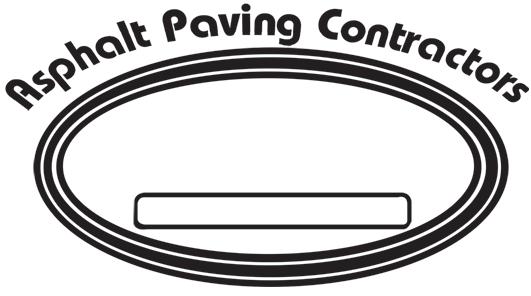




When you need limestone or other natural materials, the very best place to get them is straight from the quarry in Wisconsin. When you choose Footville Rock & Lime Corporation, that’s exactly what you’ll get: superior quality materials, provided by an honest company.
Whether you need agricultural lime for your soil treatment or are improving your residential landscape with quality stone materials, we’re here to help. We’ll even help you spread your rock to make sure it’s applied perfectly. Our full offering of products includes crushed limestone products, agricultural limestone, decorative stones, mulch, sand, dirt, driveway gravel and more.
Why choose Footville Rock & Lime Corporation for limestone and decorative stone in Wisconsin? Simple: we work to deliver the highest quality products at the best prices, and we always treat our customers with the integrity and respect they deserve.
We work with you to figure out your exact needs, and we pass along the savings of mining directly from our quarry, meaning you’re going to get exactly what you need at a price you can afford. Take a look at just a few more of the reasons we have so many satisfied customers and why our customers recommend us anytime there’s a need for limestone, landscaping materials or decorative stone in Wisconsin:
We’re a family owned and operated business.
We have a wide range of quality products available to customers.
We’re pleased to supply residential, commercial and agricultural customers alike.
We’re happy to spread rock and limestone for you upon delivery.
Our business has been around since 1974!

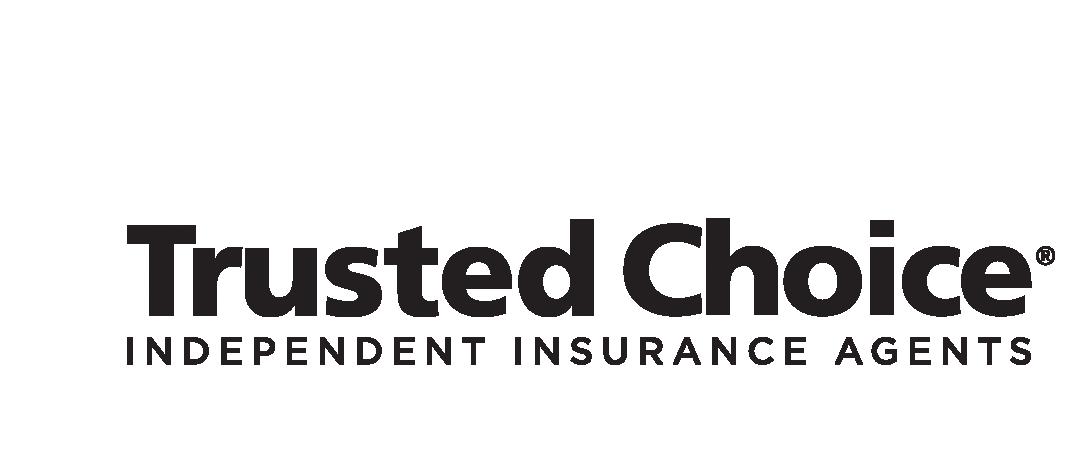
It was on June 6, 1941, that Arthur W. Anderson embarked on what was to become a very successful career in the insurance profession. His early insurance career, however, was interrupted with the outbreak of World War II where he served in the field artillery division of General Patton’s Third Army in Europe. After returning from the war, he resumed working in the insurance field.
In 1955, Art opened his first office at the Meadowmart on Windsor Road with only two employees. With a great deal of hard work in the early years, the AW Anderson Agency began to grow. It was at this time that Art Anderson looked for a more visible location for a new office building.
Groundbreaking for that new location occurred in 1959 at 6464 North Second Street in Loves Park, the current location of the office. The new facility offered housing for the agency as well as the regional claims department for Pekin Insurance.
As the community of Loves Park began to flourish in the early years of the town’s incorporation, so did the AW Anderson Agency. The office was incorporated and in 1963, Carl Lee joined the office as a producer and minority partner in the agency. Carl worked primarily in the life and health field in spurring on growth of the newly organized life company of Pekin Insurance.
Crawford DeWitt and Debbie Nelson both joined the agency in 1968 as a producer and secretary respectively. It was shortly after this time that the agency became departmentalized to enable employees to specialize in certain areas of insurance to provide their customers with the best service possible.
The decade of the 1970s saw considerable changes to the agency. First, the agency office had two separate additions to the building to accommodate the need for the added personnel required to provide the best service to their expanding client base.
In 1977, Art’s son, Jeff, joined the agency after serving as an adjuster with an insurance company to bring needed help in personal lines underwriting. Also in 1978 saw the addition of Tim Humpal as Life Department Manager. Tim brought previous experience as a successful life producer with Mass Mutual Financial Services.
In 1980, the agency experienced many

changes. Mary Smith retired as a longtime secretary/office manager after 26 years of dedicated service. Steve Anderson was hired as a personal lines and life insurance producer and Gary Anderson followed a few months later to assist with the rapidly growing commercial department.
In this same year, the agency purchased the Peterson-Gibson Insurance Agency in neighboring Rockford which they ran as a separate office until merging it with the AW Anderson Agency in 1989. The acquisition of this agency allowed the AW Anderson Agency to expand to include more clients in the Rockford area.
In 1993, Carl Lee retired as Chairman of the Board after serving 30 years with the agency and was succeeded by Crawford DeWitt. Mark Taylor was added that same year as a commercial lines producer after working several years in the credit ilfe and health field. Crawford DeWitt remained as Chairman of the Board until his retirement in 1998 and was succeeded by Jeff Anderson.
After 2000, the agency was remodeled again and added Chris Anderson in 2005 and Kyle Anderson in 2008 as producers after their graduation from Carthage College. Their addition makes the office a third generation family-owned business bringing energy and new ideas to enhance the progress of the office in the new century.
Another renovation facelift was completed both on the inside and outside of the agency office in 2013 resulting in a more updated look while removing walls within the office. Gary Anderson also retired in that same year after 33 years as a commercial life producer and former President of the agency.
In 2015, a second location was established with the purchase of Apple Insurance located in nearby Roscoe, Ill. The acquisition of this agency allowed that office to continue providing excellent customer service while expanding the services and products to those customers in Roscoe.
In 2016, Debbie Nelson retired after servicing the agency for 48 years. She is the second longest employee in agency history only exceeded by our founder, Arthur W. Anderson. It was in 2017 that Jeff Anderson decided to retire. He served in many capacities at the agency over his 40 years including Chairman of the Board.
The AW Anderson Agency has been the recipient of numerous awards from many companies including Pekin Insurance. They have maintained the status of being one of the top Property and Casualty agencies for Pekin Insurance for over 30 years and have received over 100 awards for outstanding life insurance production. Today, the agency has 13 employees with combined experience of over 250 years with many of our employees working there over 25 years or more.
Since 1941, we have helped navigate our clients through the complexities and ever changing landscape of risk, with innovative insurance products. We can do the same for you. Remember – who you insure with does make a difference.
Arthur Anderson’s personal life of achievements
Born on Flag Day on June 14, 1922, in Rockford, Art’s parents had immigrated to the United States from Sweden. He remained ever proud of his Swedish heritage and kept in close contact with his relatives in Sweden. Art grew up in Loves Park and attended schools in the Harlem

School District.
Enterprising from a very young age, Art had his first job at the age of eight delivering the Saturday Evening Post. He later worked as a youth as a shoe shine boy at the Forest Hills Country Club only to become the President of the country club as an adult.
On June 6, 1941, he embarked on what was to become a very successful career in the insurance profession. His early insurance career, however, was interrupted with the outbreak of World War II where he served in the field artillery division of General Patton’s Third Army in Europe, obtaining the rank of Staff Sergeant. He fought in the Battle of the Bulge. At the end of the war, he helped to liberate prisoners in war camps.
After returning from the war, he married Betty Lou Ralston in 1950. They would later celebrate their 50th wedding anniversary in 2000 prior to her passing in 2001. It was in 1955 that Art opened his first office at the Meadowmart on Windsor Road with only two employees, and in 1959, Art broke ground for an insurance office at 6464 North Second Street in Loves Park – the current location of his office.
Their sons, Jeff, Steve and Gary, have followed in his professional footsteps and are currently the majority owners of their father’s agency. In 2004 and 2008, the office added his grandsons, Chris and Kyle, to the staff, making the office a third generation business.
As the community of Loves Park began to flourish in the early years of its incorporation, so also did the AW Anderson Agency. Now the agency employs 12 fulltime employees. The agency building has been enlarged and remodeled several times over the past years to accommodate the growing needs of its clients.
The evolution from birth to maturity of a successful business would not have been possible without leadership. It is not surprising that the office continued to grow under the leadership of Art Anderson into a professional and highly successful insurance agency.
Art was very active in the insurance industry during a career that spanned over 50 years. He began his tenure as a Board member of Pekin Insurance in 1970, retiring in 1995 after 25 years of dedicated
service.
Art also served on the board for Rockford Mutual Insurance and was the Secretary-Treasurer of the Winnebago County Mutual Insurance Company. He served in 1973 as President of the Illinois Association of Mutual Insurance Companies and was honored with the organization’s Lautum Award.
Many Rockford area organizations were beneficiaries of Art’s innumerable measures of energy, his constant pride of his hometown, and his vision and passion to do good for his community. To name only a few of Art’s contributions to the Rockford/Loves Park area:
* Member of the Harlem School Board for two terms
* Established the Arthur W. Anderson Scholarship Fund, which contributes annually to a deserving Harlem High School senior
* Lifelong member and past President of the Harlem Fans Club
* Board member and past President of Swedish American Hospital
* Director for the Rockford Museum Center
* Director for the Sinnissippi Lung Association
* Director for the Winnebago Center for the Blind
* Director for the United Bank of Loves Park
* Member of the Loves Park Lions Club
* Member of the local Shriner and Mason organizations
* Member of the Veterans of Foreign Wars
* Member of the American Legion
* Served on many committees for Grace Lutheran Church
Late in his life, Art worked closely with the Rockford Park District and served as the Chairman in establishing and building the Field of Honor Memorial in Loves Park. It was said the genius of the Field of Honor came from Art, who felt the need to honor those veterans who gave their lives in the line of duty. This park in which the memorial stands was later named the Arthur W. Anderson Peace Park.
In recognition for his civic pride, the gymnasium at Harlem High School was named after him in June of 1994 for his
• Continued on Page 14
A high cost of living and advancements in medicine that have contributed to longer life expectancies would seemingly compel individuals to work longer, but data indicates the average professional is retiring shortly after turning 60.
Data from the 2024 MassMutual Retirement Happiness Study indicates that the average retirement age among American retirees is 62. That’s in spite of the fact that pre-retirees and retirees who participated in the study indicated that 63 is the ideal retirement age.
Canadians are staying in the workforce a good deal longer, as Statistics Canada reports the average retirement age across Canada in 2023 was 65.1. That disparity could be due to the Canada Pension Plan (CPP), which replaces part of retirees’ income with a monthly, taxable benefit. The Government of Canada reports the standard age to start the CPP is 65.
lifetime support of the school and its athletics program. He was often referred to as “Harlem’s Number One Fan,” which is engraved on the plague, which now hangs in the gymnasium.
He served as chairman of the Loves Park’s beautification committee and was honored on two occasions as the parade marshall for the Young at Heart Festival. The local history room of the North Suburban Library was named for Betty and Art Anderson for their effort in collecting and displaying the history of the City of Loves Park.
In 1997, he received the Excalibur Award given annually by the Rockford Register Star to their top individual community volunteer. His sense of community has become an important part of the philosophy of the AW Anderson Agency and has spilled over to his agency staff who have served in various volunteer
FROM pAGE 13
capacities in the Rockford/Loves Park area. Art Anderson has been a mover and a shaker in the Loves Park community for many, many years. He has given of his time and talents to any organization, regardless of its size or stature. His involvement was never passive.
To those who personally knew Art, he was keen-minded, persistent, ethical, creative, a visionary, caring and a mentor to many. He never let roadblocks in his life dissuade him from pursuing his dreams. His deep, folksy and ever-kind voice easily drew you in. He had a very special gift of pulling people together to bring projects to fruition.
Art loved his family, his insurance career, his community and his country. His capacity to get things done in his career and his civic life both testify to the depth and breadth of his thinking, which earned him the respect and admiration of many.
Small businesses are the economic engine that runs countries across the globe. Such businesses comprise a larger share of the economic landscape than big firms.
Despite how essential a thriving small business sector is, such firms are vulnerable to the fluctuating economic conditions, particularly in the aftermath of the global pandemic.
According to ValuePenguin, powered by Lending Tree, 86 percent of small businesses are facing economic challenges as of 2022. The latest MetLife and U.S Chamber of Small Business Index has identified issues that many small businesses are confronting in the current economic climate.
• Inflation: The Index indicated inflation is the number one concern for small businesses today, with 53 percent of firms reporting this is the biggest challenge they are facing. When the survey was conducted, inflation was up 30 percentage points year-over-year. Also, according to Goldman Sachs’ 10,000 Small Businesses Voices survey, more than 76 percent of respondents said the financial health of their business had been hurt by inflation in recent months.
• Supply chain issues: Larger corporations may be able to source their products from many different vendors to keep shelves stocked, but smaller businesses often experience difficulties when items become unavailable. An Oracle survey reported that 80 percent of consumers would stop buying from a brand entirely if they experienced delays or shortages in their orders. This has been troubling to small businesses who have found it harder to compete with larger firms amid supply chain disruption.
• Revenue generation: As the costs of supplies and labor has risen due to inflation, small businesses have struggled to generate revenue.
The U.S. Chamber of Small Business reported that, in the fourth quarter of 2022, nearly seven in 10 small business owners said they raised prices to cope with rising inflation as a measure to help mitigate revenue lags. Even after raising prices, certain small businesses have been having trouble breaking even.
• Rising interest rates: Small business owners who rely on loans and credit to finance their business operations have been hit hard by the rising interest rates the Federal Reserve has been implementing to stem inflation. These rising rates, coupled

Small businesses are facing considerable obstacles in the modern economy. Consulting with a business advisor may help entrepreneuers solve these issues.
with revenue struggles, are added costs to doing business.
• Recruitment and retention: Finding and keeping quality employees has been challenging for some time. This has been exacerbated by the fact that everyone is feeling the pinch of rising costs, and individuals need jobs that will offer salaries and benefits that can help them make ends meet.
This means that employees may be lured away by the prospect of better pay at big box businesses that may have more available capital to pay employees. In addition, large firms can provide access to less expensive health care plans because they are servicing a greater number of employees.
Small businesses are facing considerable obstacles in the modern economy. Consulting with a business advisor may help entrepreneuers solve these issues.
for over 50 years.
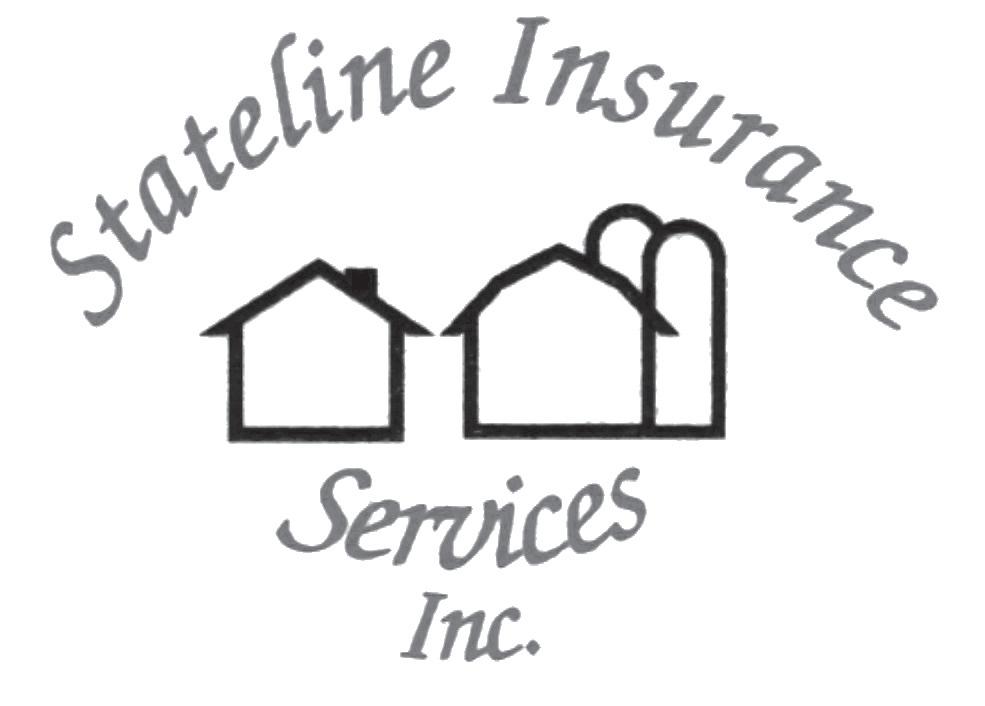


Stacey Block stacey.block@countryfinancial.com 8153694581





